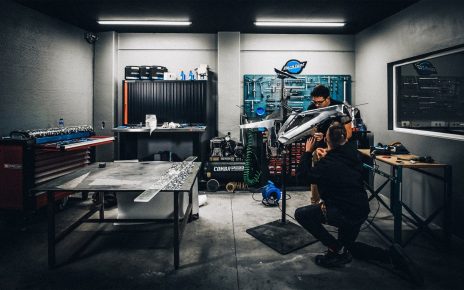Without fail, it comes every time after a race. “How’d you do?” In other words, “what place did you finish in?” For some reason, this is the first thing that pops into someone’s mind when you’ve told them that you have just finished one of the most physically taxing, risky, and adventurous ordeals of your life.
I started racing only a few years after I started mountain biking — about two-and-a-half to be exact. A local enduro series ran ads in a magazine, and as I sat on the toilet one morning staring at the glossy page, the idea weighed on me. I enjoyed riding technical trails and wanted to challenge myself to finish something hard, in a sport that I recently had fallen in love with.
My fears and anxiety were multiplied by the unknown. I didn’t have any other friends who raced at that time to give me a better idea of what to expect. It was on a mountain that I was unfamiliar with, I was by myself, and really didn’t know a lot about my mountain bike itself at the time. In fact, I’m pretty sure I raced that enduro with a rigid post controlled by a quick release seat clamp.
I finished the first stage, and got passed by at least five riders. Started the second stage on the most gnarly trail of the day, flipped over my handlebars and lost some of my tools and spare parts, but kept going after realizing I hadn’t broken anything important. After a determined grunt to the top of stage three, I punctured my tire and realized that my spare tube was left somewhere on stage two, and that I wouldn’t finish the race. I was left pushing my bike by the handlebars along the side of the trail while my rear tire flapped over the ground.
My expectations of the race undulated like the rolling hills of the midwest and went from finishing well, to finishing, to hoping that it wouldn’t take long to push my bike from near the top of the mountain to the base, all within a few hours.
That night, I camped on a lake about an hour away from the ski resort and after a few beers I stared into the fire recounting the day in my head, like I was clicking through a slideshow. I thought about what section I struggled with on the first stage, why I’d crashed on the second, and of course how I could have organized my gear differently so that it didn’t go flying all over the forest.
When I checked back in with society, in came the questions. “So, how’d you do?” asked my mom on my drive back home. “Not good. I didn’t finish.”
“Awww,” she replied in typical mom fashion, which is exactly what I didn’t want to hear.
It’s hard to explain the suspense that happens over a single day of racing to someone who really doesn’t understand the concept of entering a competition for a reason that is aside from wearing a medal across your neck or holding a trophy at the end of the day. For anyone who’s ever been in a crash, a fight, or raced, it’s almost near impossible to capture the amplitude of emotion or action in a few words, and its even tougher to put that into a number, and have that number convey your experience. It’s just not as simple as win or lose or 1st or 40th.
Years later, I’m still not racing to win. At 32-years-old, and a late-start athlete with a full-time job, I’m realistic with my expectations, but I still get psyched to zip up a race plate every now and then and push myself for a few hours. It’s a reason to be better, and get my ass off the couch, or out of the cupboard. It’s a reason to be a little bit more disciplined, and get out on that group ride when I’m feeling a little self-conscious about my fitness or skill-level.
Last summer, when I completed a few of the hardest and longest days of racing I’d ever tried, without fail, a friend pegged me with it when we met up for a few beers. “So, how’d you do?”
“Umm, well, it was like seven days of racing. Back to back. Every day was hard. Some of them were better than others. There were a lot of variables.”
My patience to try and explain why it was more than just a number wore off as I could see that he just wanted to find out how I rated compared to others, so I left out all the other details, like the friends I made, the new forests I saw, and how good it felt to push my body to a new extreme and to find out I was more capable than I thought.
“I donno. I guess I probably finished in the middle.”
“Oh, nice.”
We left it at that for the day and I moved the conversation forward. This year I doubt I’ll approach the conversation any differently. Results matter for maybe one percent of the sport. For anyone else, we’re just spending a little bit more money to push ourselves to the edge with our expensive mountain bikes. In that regard, I guess you could say we’re all doing pretty well with racing.



